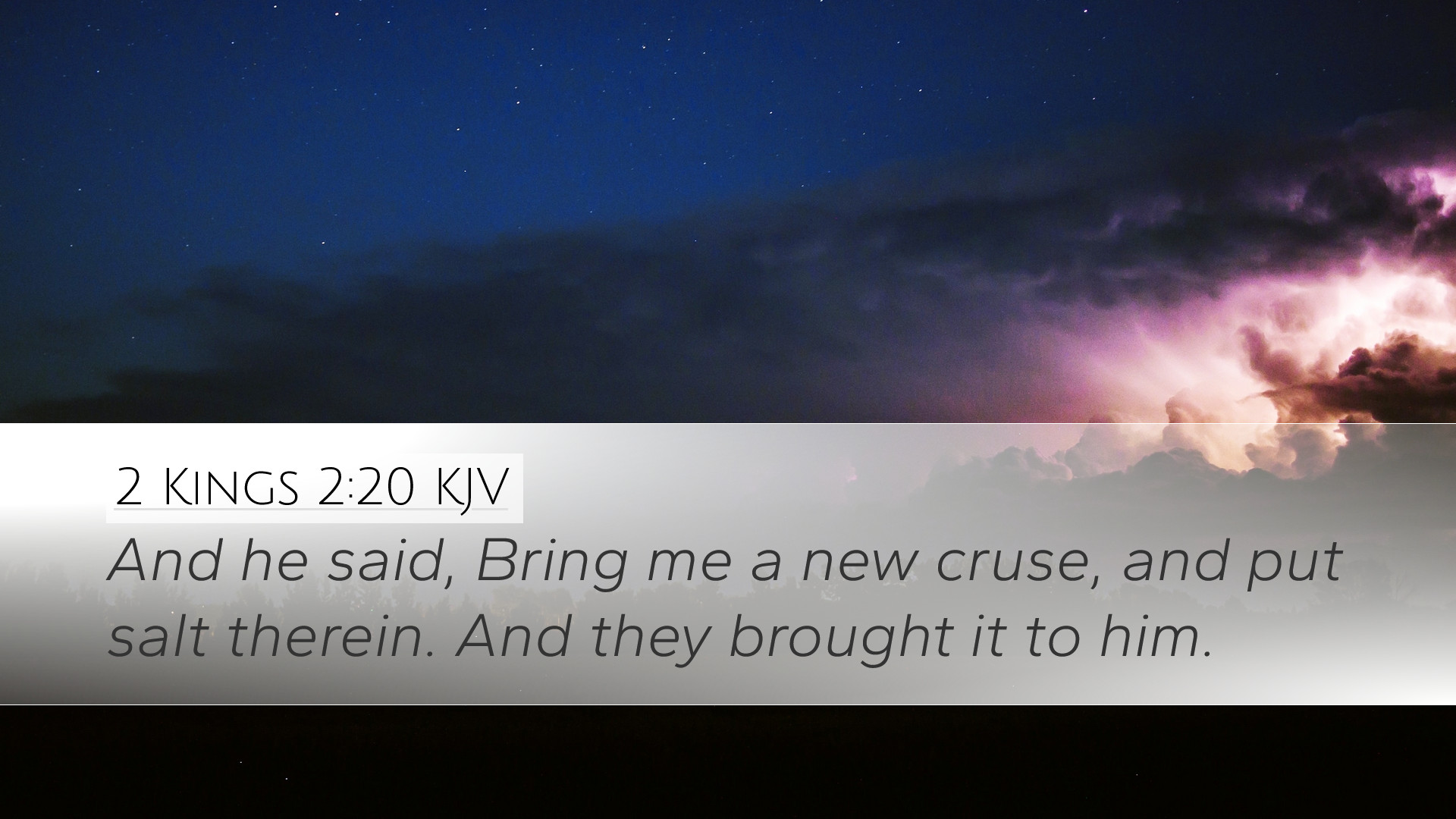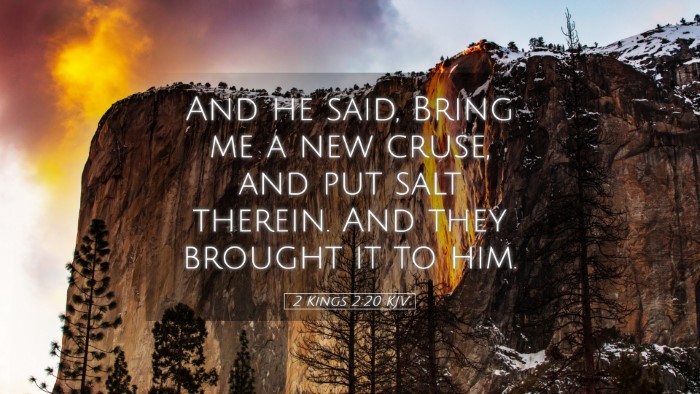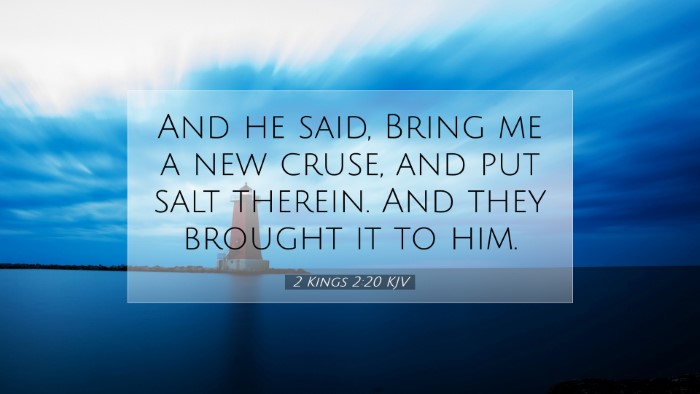Commentary on 2 Kings 2:20
2 Kings 2:20 states, "And he said, Bring me a new cruse, and put salt in it. And they brought it to him." This brief verse comes at a poignant moment in the narrative of the prophet Elisha, who has recently taken up the mantle of Elijah after his ascension. The context is vital as it underscores the transition of prophetic authority and the miraculous works that will mark Elisha’s ministry.
Contextual Background
The setting of this event is critical. Elisha is in Jericho, a city associated with both blessing and curse. The earlier Biblical account of Jericho’s destruction in Joshua signifies a place of significant spiritual and physical challenges. When the men of the city approach Elisha, they express their despair over the state of the waters, which results in barrenness and death in their land. This realization frames the need for divine intervention through the prophet.
Analysis of the Request
The request for a new cruse and salt is rich in symbolism:
- New Cruse: The new container signifies something fresh and pure. It symbolizes the new covenant and the new beginnings that God provides. Elisha, as a successor to Elijah, represents a new phase in God’s prophetic mission to Israel.
- Salt: Salt is a powerful symbol in the Bible, representing cleansing, preservation, and covenant. In the context of the waters of Jericho, which were causing death, the salt symbolizes healing and restoration. It is reminiscent of Jesus’ instruction for His followers to be the "salt of the earth," emphasizing the need for purity and preservation in the world.
Commentary Insights
According to Matthew Henry, the act of using salt indicates God’s grace and mercy. It was not merely the elements that were potent but the faith behind them. Elisha's actions emphasize that God’s power is not confined to conventional means. Instead, through simple and seemingly insignificant elements like salt and water, God enacts His will and brings about miraculous change.
Albert Barnes highlights the significance of the salt in contrast to the waters. The waters were detrimental, corrupting the land, and representing spiritual barrenness. By introducing salt—a substance associated with purity—Elisha acts as an agent of divine change. Barnes notes that this miracle emerges from a faithful obedience to God’s directive and serves as a sign of God’s commitment to Israel as they confront various hardships.
Adam Clarke provides further insight by connecting the miracle to the theme of restoration. He posits that the act itself serves a dual purpose: it not only addresses the immediate physical need but also holds broader implications for Israel’s spiritual renewal. Clarke draws parallels between Elisha’s ministry and Christ’s, noting that both involve transformation from death to life, emphasizing a fundamental theme of redemption throughout scripture.
Theological Implications
This passage gives a dual perspective on the nature of God as both a provider who hears the cries of His people and as a healer who restores what is broken. The act of bringing a new cruse and salt can be seen as a testament to God's redemptive plan that is continuously at work in history.
The narrative invites reflection on several theological themes:
- God's Authority: Elisha’s request and the subsequent miracle underscore God’s supreme authority over creation. It reminds us that spiritual leaders, empowered by God, act as facilitators of His will.
- New Life in Christ: The imagery of the new cruse can be connected to the theme of new birth found in the New Testament. Just as Elisha provided a remedy for the waters, Christ offers believers new life through faith.
- Cleansing and Holiness: Salt serves as a reminder of the call to holiness. Believers are challenged to live in a way that preserves spiritual integrity and reflects God’s purity in a corrupt world.
Conclusion
In closing, 2 Kings 2:20 serves not only as a historical account but as a profound lesson in faith and the transformative power of God. Elisha’s direct engagement with the physical element of salt highlights the intersection of the spiritual and the material in the divine narrative. As students, pastors, and theologians reflect upon this scripture, the call to recognize God's ongoing work in our lives and communities holds relevance that resonates deeply across generations.
This examination of 2 Kings 2:20 through the lens of reputable public domain commentaries sheds light on the multifaceted nature of biblical interpretation, inspiring a deeper understanding of the text’s enduring implications.


